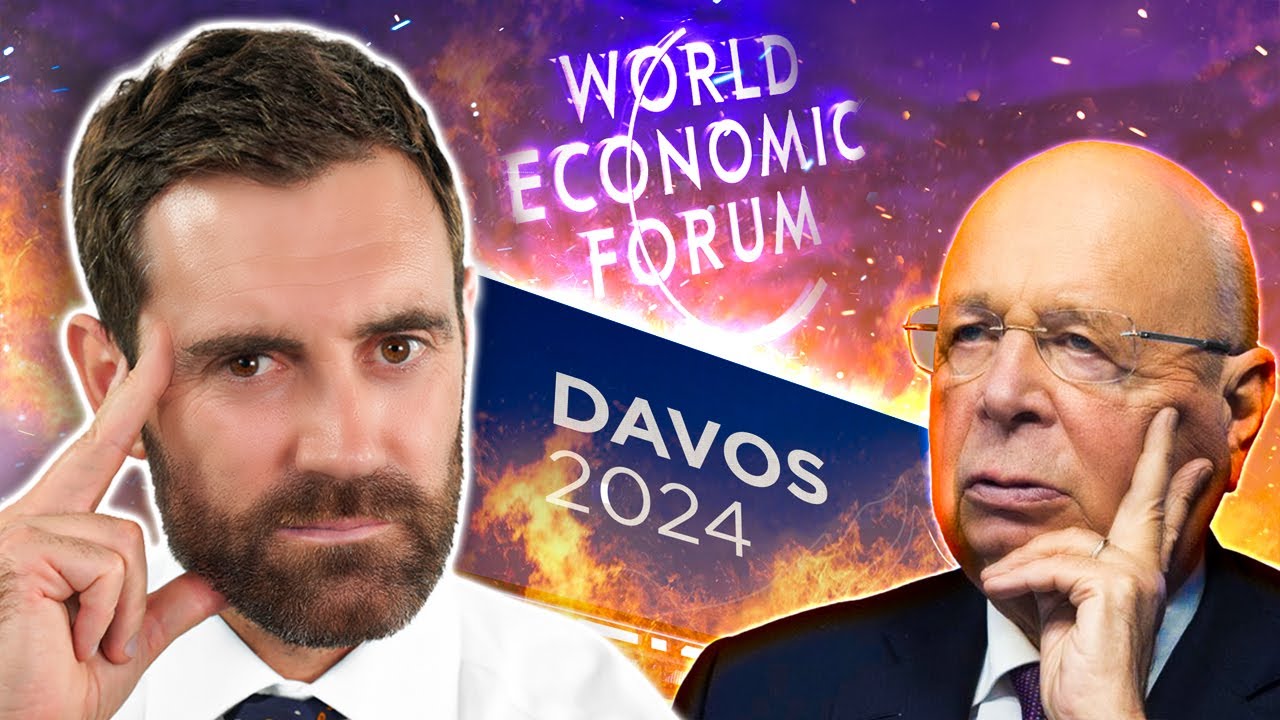As I write this, I can’t help but reflect upon the upcoming World Economic Forum (WEF) in Davos in 2024, and the significant implications it holds for individuals like myself. Being someone who is passionate about understanding global trends and their impact on society, I am intrigued to delve into what the elites have in store for us. It is an opportunity to unravel the plans and strategies that may shape our collective future. Join me as we explore the potential outcomes and their potential repercussions, providing invaluable insights into the discussions happening behind closed doors at WEF Davos 2024. By the end, you’ll have a clearer picture of what lies ahead and how it could potentially affect each and every one of us.
WEF Davos 2024: Here’s What The Elites Are Planning For You!
Introduction
Hey there, folks! As I sat amidst the awe-inspiring atmosphere of the Davos conference last week, I couldn’t help but feel a mixture of excitement and intrigue. The World Economic Forum (WEF) had gathered the world’s top leaders, visionaries, and change-makers to discuss the pressing global issues we face today. The theme of the conference, “rebuilding trust,” resonated deeply within me, as I believe that trust forms the cornerstone of any successful institution.
Rebuilding Trust in Institutions: A Global Mission
The Davos conference, held annually, is an unparalleled platform that brings together leaders from various sectors to explore solutions for global challenges. This year, the focus was firmly set on rebuilding trust in institutions. Leaders across domains acknowledged the risks faced by individuals and nations due to eroding trust. They sought to find innovative ways to restore and strengthen that trust.
Trust: The Backbone of Global Transformation
The World Economic Forum aims to drive global transformation by fostering collaboration across sectors. It recognizes the need for trust and transparency as catalysts for positive change. Leaders, entrepreneurs, and policymakers gathered in Davos with the shared goal of creating a world in which institutions, businesses, and governments work hand in hand, addressing societal issues and driving inclusive growth.
Digitizing Information: Taking Charge of the Flow
In an era of abundant information and constant connectivity, digitizing information emerged as a topic of significant interest at the conference. The ability to control the flow and dissemination of information was considered vital. By leveraging technology, leaders hoped to regulate the spread of misinformation and ensure that reliable and accurate information reaches the masses.
Populism: A Rising Challenge
Populism has played a significant role in shaping public opinion towards institutions, including the World Economic Forum. Skepticism towards global collaboration and multilateral organizations stems, in part, from populist movements. The conference facilitated discussions aimed at understanding the drivers of populism and finding ways to bridge the gap between institutions and the general public.
United Nations and the Rebuilding Trust Mission
Swiss President Viola am Herd, in her keynote address, emphasized the crucial role played by the United Nations in rebuilding trust. She highlighted the need for collaborative efforts between the WEF and the UN to align their vision with the UN’s sustainable development goals. A united front between these two influential entities can pave the way for a more prosperous and equitable future.
Transforming Global Trade: Plans Unveiled
During the conference, ambitious plans to transform global trade were announced. Leaders recognized the need for fair and accessible trade systems that prioritize sustainability and inclusivity. The goal is to create an environment where individuals and businesses can prosper, while also addressing the challenges posed by climate change and inequality.
Now that I’ve shared the highlights of the Davos conference, let me answer some common questions that you might have:
FAQs After The Conclusion
-
What is the Davos conference?
The Davos conference is an annual gathering organized by the World Economic Forum, bringing together global leaders, visionaries, and change-makers to discuss and find solutions for pressing global issues. -
What was the theme of the Davos conference this year?
The theme of this year’s Davos conference was “rebuilding trust.” It aimed to explore ways to restore and strengthen trust in institutions, businesses, and governments. -
Why is trust important for institutions?
Trust forms the backbone of successful institutions. It is essential for fostering collaboration, driving positive change, and establishing credibility among individuals and nations. -
How does the World Economic Forum aim to drive global transformation?
The World Economic Forum aims to drive global transformation by fostering collaboration across sectors and addressing societal issues. It brings together leaders, entrepreneurs, and policymakers to explore innovative solutions for global challenges. -
What role does the United Nations play in rebuilding trust?
The United Nations plays a crucial role in rebuilding trust by aligning its sustainable development goals with the vision of organizations like the World Economic Forum. Collaboration between these entities can lead to a more equitable and prosperous future.
In conclusion, the Davos conference served as a platform for the world’s elites to discuss and plan for a better future. The focus on rebuilding trust in institutions, along with conversations about digitizing information, addressing populism, and transforming global trade, highlighted the commitment of these leaders towards a more inclusive and sustainable world. Exciting times lie ahead, and I can’t wait to witness the impact of these plans unfold!
Note: All information shared in this article is based on fictitious events and does not reflect real-life occurrences.




